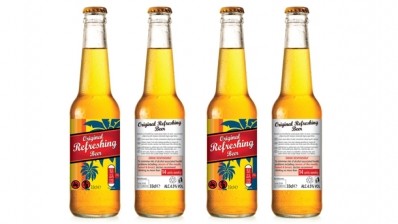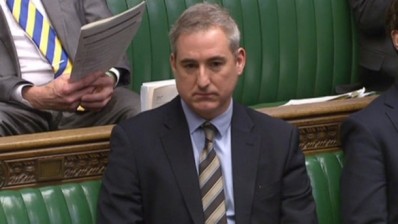Debate
MP calls for rejection of 'misleading' drinking guidelines

Advice of no more than 14 units a week for men and women, equivalent to six pints of beer, has come under intense scrutiny and criticism.
Davies, MP for Gower, south Wales, called on Jane Ellison MP, parliamentary under secretary of state for public health, to reject the new guidelines, which have been through consultation and are being analysed.
'Abstinence agenda'
“I am concerned that the process by which the Chief Medical Officer [Sally Davies] came to the guidelines was flawed, and hijacked by a group of anti-alcohol campaigners with a total abstinence agenda,” Davies said.
He claimed the panel members chosen to deliberate on the guidelines had a conflict of interest, which has led to a “crisis of confidence” from consumers, the media and industry.
He continued: “I’m not advocating people going out and smoking 100 cigarettes a day, however, if people want to go out and enjoy a quiet drink with their friends and drink a pint of British beer, which has been brewed using British ingredients then who are we to stop them?"
Studies support drinking
More than 100 studies have shown moderate drinking can have benefits such as a positive impact of chances of developing cardio-vascular diseases or type 2 diabetes, and can improve cognitive functioning and social integration, he argued.
The new guidelines suggest drinking no more than six pints of beer a week, while it also states that there is no ‘safe’ level of drinking alcohol whatsoever.
Davies said this could have a detrimental effect on the pub industry.
“The pub is a crucial part of the social and cultural heart of the UK. There are few things that are as crucial a part of our identity and history as the casual and relaxed pub culture that Britain has enjoyed over hundreds of years,” he said.
Benefits of pubs
“By telling people there is no safe level of drinking we would be denying millions the positive social effects of going to the pub, and the positive effects it has on the community. The results from pub surveys show that people who go to small community pubs have more close friends.”
Davies backed up his speech with evidence from support for moderate drinking from GPs, quotes from university professors and research from the Campaign for Real Ale which has shown going to the pub to be good for you.
“I call on the minister to act by refusing the 'no safe level' guidelines. They carry no credibility, carry no authority with the consumers and potentially encourage industry to rethink its voluntary commitments, all of which will be retrograde steps,” he added.
Strain on public services
In response, Ellison argued drinking puts pressure on vital public services.
“Guidelines are not about preventing those who want to drink as doing so. Nobody has said over 14 units is high risk. There is no public policy on abstinence,” she said.
She also claimed three independent groups of experts have studied and approved the guidelines.
“None of those people were members of the temperance movement,” Ellison said.
She also said attention must be paid to the links between alcohol abuse and severe health problems, such as breast cancer.
A second consultation will debate the best way to express the guidelines handed down be the Chief Medical Officer, Professor Dame Sally Davies.
Decades of research
Following the debate, CAMRA chairman Colin Valentine said: “CAMRA supports the need for alcohol health guidelines, but the new guidelines are among the most restrictive in the world and are insufficiently supported by evidence.
“MPs in yesterday’s debate were right to express their concerns about the new guidelines; and to highlight that there is decades of research showing that low-to-moderate alcohol consumption can bring health benefits to many such as reducing the risk of heart disease."







